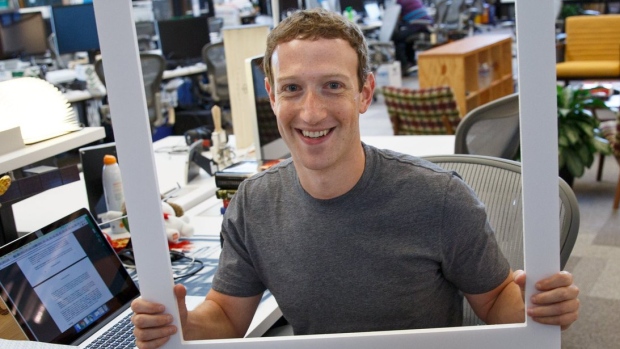Tape over your laptop camera? Why it might not be as paranoid as it seems
 June 25: A photo circulating online of Facebook CEO Mark Zuckerberg’s personal laptop has ignited a conversation about data security, and how people can protect themselves against hackers.
June 25: A photo circulating online of Facebook CEO Mark Zuckerberg’s personal laptop has ignited a conversation about data security, and how people can protect themselves against hackers.
The photo shows a smiling Zuckerberg sitting next to his laptop. But the curious thing is that his computer’s camera and microphone are covered with tape.
Tape? Yes, tape.
Covering a computer’s camera doesn’t protect the device from being hacked, but it does prevent a hacker from being able to see whatever the camera sees. Covering a laptop’s microphone can muffle the audio enough to prevent a hacker from listening in, uninvited.
Several security experts say it’s not paranoid — it’s good sense. Even if you’re not a high-profile target like Zuckerberg.
“It’s just preventative maintenance — it removes the doubt of, ‘what if somebody got into his system,'” said Dave Lewis, a global security advocate who works for Akamai Technologies.
Lewis said he’s been covering the cameras on his own computers with Post-it notes since the early 2000s.
“The easiest way to remove that lingering doubt is to just slap some tape over it. Problem solved.”
How it works
A hacker can get access to your entire computer, without your knowledge, relatively easily, through dodgy email links, for example.
“When you click on that link, something installs in the background because, by virtue of your action, you’ve allowed the software to install on your system,” said Lewis.
Molly Sauter, a PhD candidate at Montreal’s McGill University and the author of The Coming Swarm: DDoS Actions, Hacktivism, and Civil Disobedience on the Internet, agreed, saying “tape is the best.”
“It’s easy to grasp and you can control it,” she said.
In security testing, Lewis said he’s been able to breach a system and take control of a person’s laptop camera without their knowledge.
“And it doesn’t even always trip the light that shows the camera is live,” he added.
In a way, the Zuckerberg photo confirms that nothing is really safe online — for all the anti-virus software out there, a piece of tape may be one of the most effective tools available.
‘Air gapping’
The idea that someone could hack a laptop camera is particularly unsettling given the fact that many people keep their laptops in their living rooms and bedrooms. Hackers could use photos or information from the computer for extortion.
And it’s also incredibly invasive.
Sauter says using a physical object such as tape is a good form of extra security. She said this is similar to the concept of “air gapping,” which is when computers are not connected to the internet in any way — this prevents any hacker from being able to access the computer’s files via the internet.
“It’s physical security that seems really basic, but it’s also the most secure,” she said.
Similarly, putting a Post-it or a piece of tape over a laptop’s camera is lo-fi, but it offers good physical protection. Sauter said she’s been covering her laptop camera for the past four or five years.
Women, political dissidents at higher risk
Unsurprisingly to many, women tend to be targets for this kind of hacking.
“Women on the internet get a lot of attention. Some of it good, a lot of it’s bad,” said Sauter. “And a lot of this attention really tends to be highly sexualized, and it tends to be highly threatening.”
It’s more common than we think, said John Scott-Railton, a senior researcher at the Citizen Lab at the Munk School of Global Affairs at the University of Toronto.
Scott-Railton said this practice is called “ratting,” adding sometimes hackers will trade access to hacked computers.
He said the same kind of software used to hack women’s webcams is used to hack political dissidents, members of activist groups, and journalists.
“These are people that are regularly targeted by different hacking groups because of their work, and in some cases we have evidence that they’re spied on through their webcams,” he said.
And — surprise, surprise — Scott-Railton also covers his laptop camera.
Best steps to protect yourself
Lewis said the steps a person can take to protect against this kind of intrusion depends on the level of risk they’re comfortable with.
“If they have a bad habit of walking around the house naked, or giving out secrets like their banking information, absolutely [cover the camera],” he said.
Sauter suggests using two-step authentication processes for email and social media accounts.
She also recommends the tape method — just don’t use the clear kind. cbc.ca
